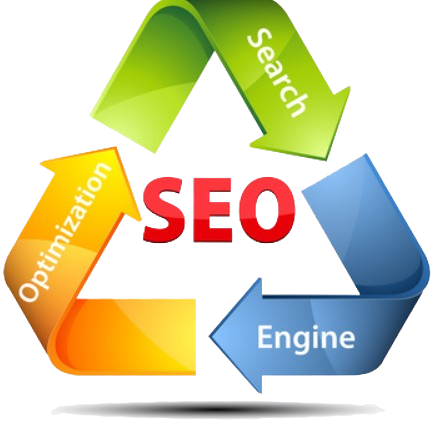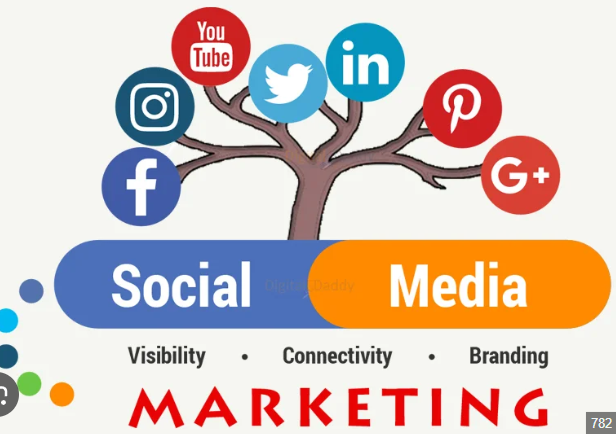
What is SEO and why is it important for websites? Search Engine Optimization (SEO) is one of the best strategies to make sure your content receives the attention it needs. Businesses, bloggers, and content producers are always trying to get their target audience to notice them in the digital world of today. The goal of search engine optimization (SEO) is to increase the visibility of your website on search engine results pages (SERPs). Your content will rank higher with improved SEO, which will increase traffic and your chances of success online. However, what does SEO actually involve? Let’s dissect it.
SEO: What is it?
Making your website and its content more search engine friendly in order to rank higher in search engines like Google, Bing, or Yahoo is known as SEO. It includes a number of components, including technical details, user experience, content quality, and keywords, all of which are intended to improve your website’s appeal to both search engines and users.
To identify which web sites are most pertinent and helpful for certain search queries, search engines such as Google employ sophisticated algorithms. You can make sure that the proper people are seeing your material by being aware of these algorithms and making adjustments for them.
Essential Components of SEO Keywords
The cornerstone of SEO is the keyword. When people are searching for information, goods, or services, they enter these terms or phrases into search engines. You may increase your chances of ranking for such search queries by including pertinent keywords in your content.
Tip: To find the ideal keywords for your niche, use programs like Ahrefs, SEMrush, or Google Keyword Planner.
Page-Level SEO
The tactics you use directly on your website to raise its search engine rankings are known as on-page SEO. This involves making things like:
Title Tags: Make sure your goal term is in the title of every page on your website.
The little excerpt that shows up beneath your title in search results is called a meta description. It should contain important terms and promote clicks.
Tags for headers (H1, H2, etc.): These aid in structuring your content so that search engines and readers can comprehend it more easily.
Creating a clear structure and facilitating search engine crawling of your material are two benefits of internal linking.
Quality of Content
When it comes to SEO, content is king. Content that is interesting, educational, and of good quality has a higher chance of being shared, linked to, and ranked higher. Your audience’s queries or issues should be addressed in your material.
Advice: Since search engines prefer thorough, authoritative information, concentrate on producing long-form material that offers in-depth insights into subjects.
Technical search engine optimization
Technical SEO concentrates on your website’s backend features. This entails making your website faster, making sure it’s mobile-friendly, repairing broken links, and making sure search engine bots can quickly crawl it.
Important technical SEO components consist of:
Site Speed: A website that loads quickly enhances user experience and may have an effect on your search engine rankings.
Mobile Optimization: Since more people are using mobile devices to browse the internet, your website must function flawlessly on all of them.
SSL Certificates: Search engines prefer secure websites, thus you should use “HTTPS” rather than “HTTP” in your URL.
XML Sitemap: Facilitates efficient site crawling and indexing by search engines.
Actions conducted outside of your website that affect your rankings are the topic of off-page SEO. Building backlinks—links from other websites to yours—is the major focus of this. For search engines, backlinks act as “votes of confidence,” indicating the value and reliability of your material.
Advice: Increase backlinks by working with influencers, guest blogging, and producing content that people want to share and link to.
Experience of the User (UX)
Websites that offer an excellent user experience are valued by search engines. Clear calls-to-action, quick loading times, mobile optimization, and simple navigation are all components of improved user experience (UX), which can raise your results.
Advice: Conduct routine audits of your website to make sure users are having a smooth, intuitive experience.
Best Practices for SEO
Produce Useful Content: Your SEO will gradually improve if your content is helpful, educational, and interesting. This is because it will be more likely to be shared and linked to.
Pay Attention to User Intent: Understand what users are searching for and generate content that precisely answers their questions.
Use Alt Text for Images: Alt text tells search engines what an image contains. Additionally, it makes your website more inclusive by improving accessibility.
Update Your Content Frequently: New and updated content is preferred by search engines. Adding fresh content or going over existing pieces on a regular basis can improve your results.
Assess and Examine: To monitor your SEO development, use tools such as Google Analytics and Google Search Console. These tools can give you important information about how people are finding your website and what keywords are bringing in visitors.
The Significance of SEO for Your Company
Enhanced Awareness: More people will discover your material the higher you rank on search engines.
Targeted Traffic: By drawing in people who are actively looking for what you have to offer, SEO raises the likelihood that they will become clients.
Long-Term Plan: SEO is a long-term investment that can continue to produce benefits over time, in contrast to sponsored advertisements, which cease to function as soon as your budget runs out.
Brand Credibility: Higher ranking websites are frequently seen as more reliable and credible, which enhances the reputation of your company.
In conclusion
Although learning SEO can initially appear intimidating, you can greatly increase your website’s performance and visibility by comprehending and putting important ideas into practice. SEO is a crucial tool in today’s digital environment, regardless of whether you’re a content producer trying to reach a larger audience or a business owner hoping to increase sales. Focus on the fundamentals first, then progressively increase your efforts as you observe progress. The outcomes will be self-evident if you are persistent and patient!
Read more blogs here.
Also visit these blogs.






